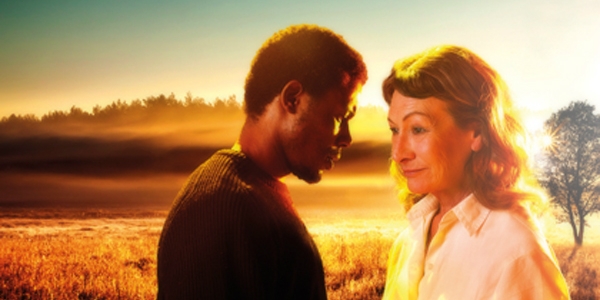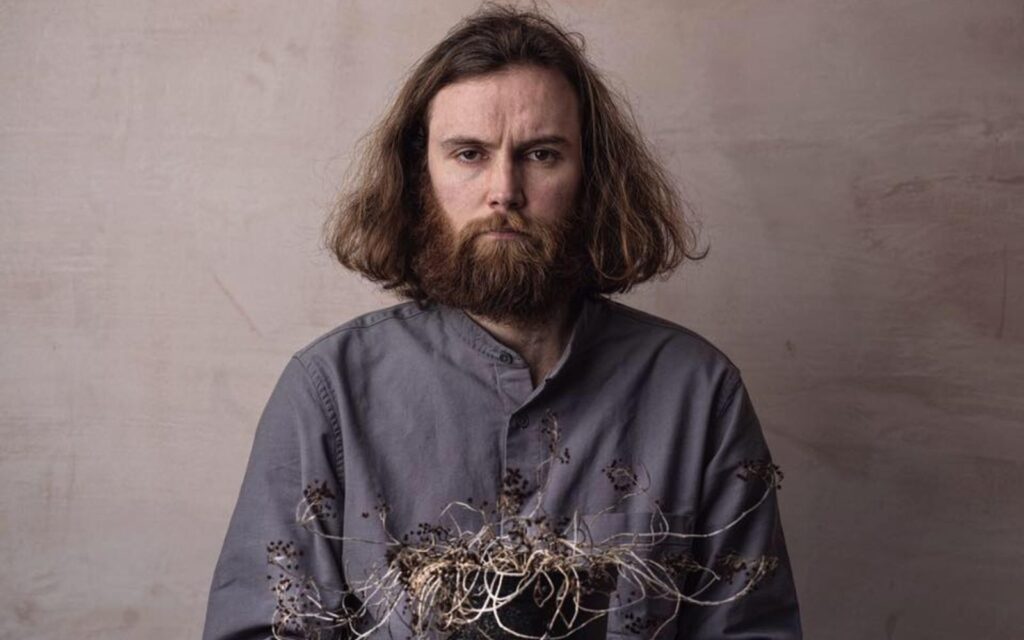“We’re trying to conserve energy, trying to remember what we did in the rehearsal room,” Mzembe says as he describes the pre-show process. “It’s the chance to give the tech guys their opportunity to get the lighting and the sound spot on. I guess at dress rehearsals everyone is going ‘this is where we’re at, this is what we need to work on’, then the preview show happens, the opening, and we go from there. “
At this stage of the process the largest audience he and Jones have had for their two-person show is around 20 people, and “it was still in such a raw form,” says Mzembe. “We’re testing the waters, seeing if people are laughing at certain areas, where they’re really getting engaged. Because we haven’t done it on stage before we’re testing our voices, the sound, the people, the lighting…it’s about repetition.”
Solomon and Marion deals with loss, pain, and brutal violence, all set in post-apartheid South Africa. It’s heavy stuff, demanding a lot from the two actors. “It’s tough,” confesses Mzembe. “One big thing I did when I first read it, and still when I read it now, is to look at it from the perspective of humanity. It’s a very human story. South Africa has a very dark history, a dark past. It’s heavy, it’s very bleak, and you can get caught up in that but if you immerse yourself in the character you can find a lot of similarities with your own self.”
Sharing the stage with Jones has lightened the load somewhat. “It’s been awesome. My first production straight out of NIDA was Antigone and she was in it. She played the blind prophet, and I met her there for the first time. It’s back to square one, it’s pretty good.”
Working in a two person show has its challenges too, but having actress Pamela Rabe directing the production has proven to be a blessing. “It is very different, but having Pam there as an actress – she’s the director here but she’s definitely an actress – is great. I have a lot of respect for the both of them and what they’ve done in the industry. When I’m in there I try to be confident and make my choices but be able to listen and take a lot on board from these professionals who’ve been in the industry for such a long time.”
There’s been a lot for the three of them to tackle as a team in the text. “A lot of things, a lot of big things. Forgiveness. The challenge of co-existing in a space, co-existing in a country.” And how does Mzembe think audiences will process what Solomon and Marion presents them with?
“Like most countries, South Africa has a dark past. People can look at that from that historical perspective or simply a human perspective. There’s a lot of fear, a lot of loss. People are going to be looking at us and thinking about how they handle things themselves. Obviously there’s the South African accents but people will get past that. When things like chicken feet rock up on stage or painting, they’ll get lost in that as well.
“What I stand for as an actor is to show society how it was, is and could be. If you’re continually doing that, if you’re asking people to look at themselves, then they’ll keep coming back to the theatre, they’ll be inspired, challenged, motivated.”
BY JOSH FERGEUS







